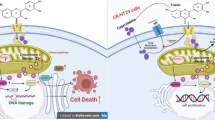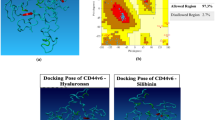Abstract
Over-expression of the proto-oncogene survivin in colorectal cancer stem cells (CCSCs) is thought to be one the primary causes for therapy failure. It has also been reported that tumor suppressor miR-16-1 is down-regulated in colorectal cancer (CRC) cells. Therefore, the search for new anti-proliferative agents which target survivin or miR-16-1 in CCSCs is warranted. Several studies have shown that prodigiosin isolated from cell wall of Serratia marcescens induces apoptosis in different kinds of cancer cells. Here, we investigated the effects of prodigiosin on HCT-116 cells that serve as a model for CRC initiating cells with stem-like cells properties. HCT-116 cells were treated with 100, 200 and 400 nM prodigiosin after which cell number, viability, growth-rate, survivin and miRNA-16-1 expression, caspase-3 activation and apoptotic rate were evaluated. Prodigiosin decreased significantly growth-rate in a dose-and time-dependent manner. After a 48 h treatment with 100, 200 and 400 nM prodigiosin, growth-rates were measured to be 84.4 ± 9.2 %, 58 ± 6.5 % and 46.3 ± 5.2 %, respectively, compared to untreated cells. We also found that treatment for 48 h with indicated concentrations of prodigiosin resulted in 41 %, 54.5 % and 63 % decrease in survivin mRNA levels and induced 32 %, 48 % and 61 % decrease in survivin protein levels as well as resulted in 128.3 ± 10 %, 178.7 ± 6.1 % and 205 ± 7.6 % increase in caspase-3 activation respectively compared to untreated cells. Prodigiosin caused a significant increase in miRNA-16-1 expression at a concentration of 100 nM and treatment with different concentrations of prodigiosin resulted in 2.2- to 3-fold increase in miRNA-16-1/survivin ratios compared to untreated cells. An increase in number of apoptotic cells ranging from 28.2 % to 86.8 % was also observed with increasing prodigiosin concentrations. Our results provide the first evidence that survivin and miRNA-16-1 as potential biomarkers could be targeted in CRC initiating cells with stem-like cells properties by prodigiosin and this compound with high pro-apoptotic capacity represents the possibility of its therapeutic application directed against CCSCs.





Similar content being viewed by others
References
Siegel R, Desantis C, Jemal A (2014) Colorectal cancer statistics. CA Cancer J Clin 64(2):104–117
Safaee A, Fatemi SR, Ashtari S, Vahedi M, Moghimi-Dehkordi B, Zali MR (2012) Four years incidence rate of colorectal cancer in Iran: a survey of national cancer registry data-implications for screening. Asian Pac J Cancer Prev 13(6):2695–2698
Saunders M, Iveson T (2006) Management of advanced colorectal cancer: state of the art. Br J Cancer 95(2):131–138
Wilson BJ, Schatton T, Frank MH, Frank NY (2011) Colorectal cancer stem cells: biology and therapeutic implications. Curr Colorectal Cancer Rep 7(2):128–135
Dalerba P, Cho RW, Clarke MF (2007) Cancer stem cells: models and concepts. Annu Rev Med 58:267–284
Reya T, Morrison SJ, Clarke MF, Weissman IL (2001) Stem cells, cancer, and cancer stem cells. Nature 414(6859):105–111
O’Brien CA, Pollett A, Gallinger S, Dick JE (2007) A human colon cancer cell capable of initiating tumour growth in immunodeficient mice. Nature 445(7123):106–110
Ricci-Vitiani L, Lombardi DG, Pilozzi E, Biffoni M, Todaro M, Peschle C, De Maria R (2007) Identification and expansion of human colon-cancer-initiating cells. Nature 445(7123):111–115
Deorukhkar AA, Chander R, Ghosh SB, Sainis KB (2007) Identification of a red-pigmented bacterium producing a potent anti-tumor N-alkylated prodigiosin as Serratia marcescens. Res Microbiol 158(5):399–404
Sumathi C, MohanaPriya D, Swarnalatha S, Dinesh GM, Sekaran G (2014) Production of prodigiosin using tannery fleshing and evaluating its pharmacological effects. Sci World J 2014:290327
Francisco R, Pérez-Tomás R, Gimènez-Bonafé P, Soto-Cerrato V, Giménez-Xavier P, Ambrosio S (2007) Mechanisms of prodigiosin cytotoxicity in human neuroblastoma cell lines. Eur J Pharmacol 572(2–3):111–119
Ho TF, Peng YT, Chuang SM, Lin SC, Feng BL, Lu CH, Yu WJ, Chang JS, Chang CC (2009) Prodigiosin down-regulates survivin to facilitate paclitaxel sensitization in human breast carcinoma cell lines. Toxicol Appl Pharmacol 235(2):253–260
Hassankhani R, Sam MR, Esmaeillou M, Ahangar P (2015) Prodigiosin isolated from cell wall of Serratia marcescens alters expression of apoptosis-related genes and increases apoptosis in colorectal cancer cells. Med Oncol 32(1):366
Sarela AI, Macadam RC, Farmery SM, Markham AF, Guillou PJ (2000) Expression of the antiapoptosis gene, survivin, predicts death from recurrent colorectal carcinoma. Gut 46(5):645–650
Violette S, Poulain L, Dussaulx E, Pepin D, Faussat AM, Chambaz J, Lacorte JM, Staedel C, Lesuffleur T (2002) Resistance of colon cancer cells to long-terms 5-flourouracil exposure is correlated to the relative level of BCL-2 and BCL-XL in addition to BAX and P53 status. Int J Cancer 98(4):498–504
Lee RC, Feinbaum RL, Ambros V (1993) The C. elegans heterochronic gene lin-4 encodes small RNAs with antisense complementarity to lin-14. Cell 75(5):843–854
Bartel DP (2004) MicroRNAs: genomics, biogenesis, mechanism, and function. Cell 116(2):281–297
Bartel DP (2009) MicroRNAs: target recognition and regulatory functions. Cell 136(2):215–233
Esquela-Kerscher A, Slack FJ (2006) Oncomirs - microRNAs with a role in cancer. Nat Rev Cancer 6(4):259–269
Huang Q, Gumireddy K, Schrier M, le Sage C, Nagel R, Nair S, Egan DA, Li A, Huang G, Klein-Szanto AJ, et al. (2008) The microRNAs miR-373 and miR-520c promote tumour invasion and metastasis. Nat Cell Biol 10(2):202–210
Zhang BG, Li JF, Yu BQ, Zhu ZG, Liu BY, Yan M (2012) microRNA-21 promotes tumor proliferation and invasion in gastric cancer by targeting PTEN. Oncol Rep 27(4):1019–1026
Lee DY, Deng Z, Wang CH, Yang BB (2007) MicroRNA-378 promotes cell survival, tumor growth, and angiogenesis by targeting SuFu and Fus-1expression. Proc Natl Acad Sci U S A 104(51):20350–20355
Young LE, Moore AE, Sokol L, Meisner-Kober N, Dixon DA (2012) The mRNA stability factor HuR inhibits microRNA-16 targeting of COX-2. Mol Cancer Res 10(1):167–180
Ma Q, Wang X, Li Z, Li B, Ma F, Peng L, Zhang Y, Xu A, Jiang B (2013) microRNA-16 represses colorectal cancer cell growth in vitro by regulating the p53/survivin signaling pathway. Oncol Rep 29(4):1652–1658
Montaner B, Pérez-Tomás R (2002) The cytotoxic prodigiosin induces phosphorylation of p38-MAPK but not of SAPK/JNK. Toxicol Lett 129(1–2):93–98
Yeung TM, Gandhi SC, Wilding JL, Muschel R, Bodmer WF (2010) Cancer stem cells from colorectal cancer-derived cell lines. Proc Natl Acad Sci U S A 107(8):3722–3727
Kai K, Nagano O, Sugihara E, Arima Y, Sampetrean O, Ishimoto T, Nakanishi M, Ueno NT, Iwase H, Saya H (2009) Maintenance of HCT116 colon cancer cell line conforms to a stochastic model but not a cancer stem cell model. Cancer Sci 100(12):2275–2282
Roy S, Majumdar AF (2012) Signaling in colon cancer stem cells. J Mol Signal 7(1):11
Deng YH, Pu XX, Huang MJ, Xiao J, Zhou JM, Lin TY, Lin EH (2010) 5-Fluorouracil upregulates the activity of Wnt signaling pathway in CD133-positive colon cancer stem-like cells. Chin J Cancer 29(9):810–815
Royds JA, Iacopetta B (2006) p53 and disease: when the guardian angel fails. Cell Death Differ 13(6):1017–1026
Montaner B, Navarro S, Piqué M, Vilaseca M, Martinell M, Giralt E, Gil J, Pérez-Tomás R (2000) Prodigiosin from the supernatant of Serratia marcescens induces apoptosis in hematopoietic cancer cell lines. Br J Pharmacol 131(3):585–593
Montaner B, Perez-Tomas R (2001) Prodigiosin-induced apoptosis in human colon cancer cells. Life Sci 68(17):2025–2036
Acknowledgments
The authors express their great appreciation for the financial support received for this work from Urmia University.
Author information
Authors and Affiliations
Corresponding author
Ethics declarations
Conflict of Interest
The authors declare no conflict of interest.
Rights and permissions
About this article
Cite this article
Sam, S., Sam, M.R., Esmaeillou, M. et al. Effective Targeting Survivin, Caspase-3 and MicroRNA-16-1 Expression by Methyl-3-pentyl-6-methoxyprodigiosene Triggers Apoptosis in Colorectal Cancer Stem-Like Cells. Pathol. Oncol. Res. 22, 715–723 (2016). https://doi.org/10.1007/s12253-016-0055-8
Received:
Accepted:
Published:
Issue Date:
DOI: https://doi.org/10.1007/s12253-016-0055-8




